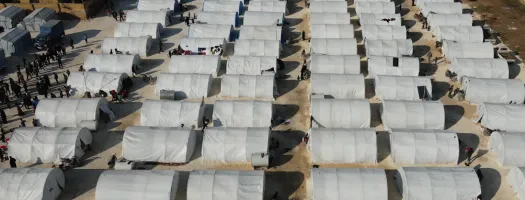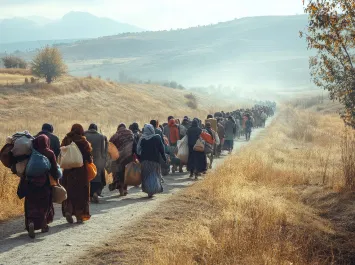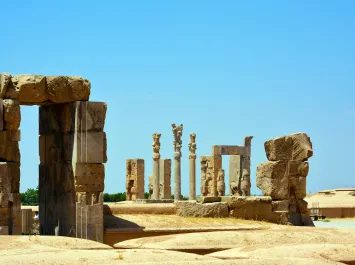International migration and mobility are growing global phenomena, increasingly involving mixed migration flows and triggering new challenges in the areas of security and human rights, to name just a few.
Analysing migration as a crosscutting topic and considering the perspectives of both migrants and States, along with other fundamental actors in the global governance system, are crucial steps in developing and implementing national migration and asylum policies that comply with international human rights, humanitarian standards, and labour protection policies.
As reported by the United Nations High Commissioner for Refugees (UNHCR), global displacement grew by 21 per cent in 2022, reaching 108.4 million people by the end of the year due to persecution, conflict, violence, human rights violations or events seriously disturbing public order. More than 1 in 74 people worldwide remained forcibly displaced, with almost 90 per cent of them in low- and middle-income countries. Among those forcibly displaced, internally displaced persons (IDPs) numbered over 62.5 million in 2022, and refugees numbered over 35.3 million. In 2022, 54% of all forms of internal displacement were caused by disasters.
Although numerous international legal instruments are in place to ensure the protection of human rights for migrants, asylum seekers and refugees, and trafficking victims, violations frequently occur. Despite the potentially significant benefits of migration, irregular and low-skilled economic migrants, smuggled migrants, asylum seekers and refugees, and victims of trafficking remain among the most vulnerable members of our society. They are exposed to discrimination, abuse, and exploitation by various actors, including transnational organized crime networks and terrorist organizations.
The 2030 Agenda for Sustainable Development includes, in Sustainable Development Goal (SDG) 10, Target 7, a pledge by United Nations’ Member States to “Facilitate orderly, safe, regular and responsible migration and mobility of people, including through the implementation of planned and well-managed migration policies.” Moreover, the adoption of two Global Compacts in 2018, respectively, on Safe, Orderly and Regular Migration and on Refugees, is a clear indicator of the relevance of international migration in the global governance system.
With these considerations in mind, UNICRI, in cooperation with John Cabot University (JCU), will deliver the ninth edition of the Summer School on Migration and Human Rights, a one-week course shedding light on current issues related to international migration. Participants will gain insights into a variety of concepts and topics and actively engage in discussing matters related, amongst others issues, to:
- International human rights, humanitarian, migration, anti-trafficking, and asylum laws
- The rights of asylum seekers and refugees under international and European law
- The rights of asylum seekers and migrants under the European Convention on Human Rights and in the case-law of the European Court of Human Rights
- Internally displaced persons
- Irregular migration: balancing human rights and security
- Irregular migration by sea
- Migration and rural development
- Migrant protection and assistance
- Right to health for migrants and refugees
- Migration and the challenge of religious pluralism
- Protection of migrant children
- Migration, development, and integration
- Global displacement
The Summer School offers a comprehensive exploration of professional, legal, social, scientific, and academic perspectives through theoretical lectures, group discussions, dynamic case studies, individual readings, and practical exercises. The faculty of the Summer School comprises leading scholars and academics from John Cabot University and other universities, along with representatives from the United Nations system, international human rights bodies, and civil society.
By attending the course, participants will have the unique opportunity to interact with internationally recognized experts and peers from around the world, exchange views and opinions and build lasting professional relationships. This experience promotes intercultural dialogue and deepens understanding of some of the world’s most complex and debated issues.
For more information please click here



